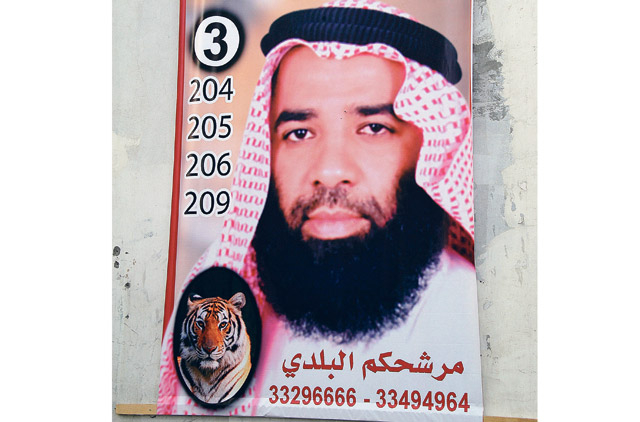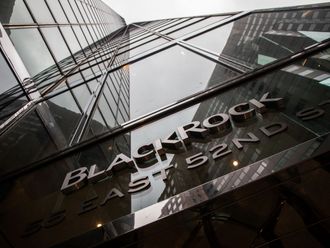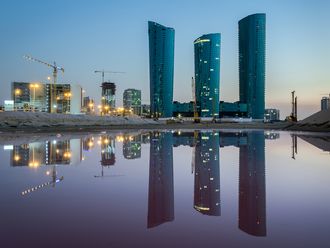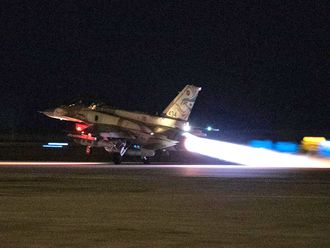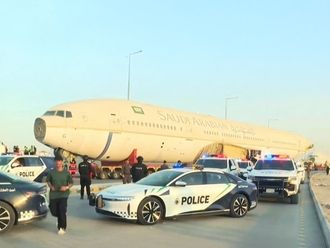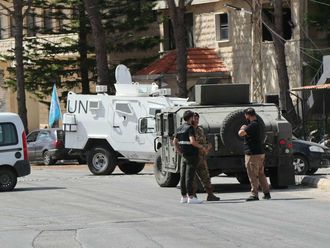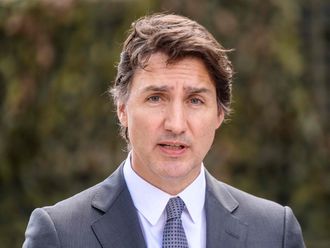
Manama: When Younis Al Bashir put up posters urging people to elect him as one of their municipal councillors, he believed he would have their attention. He did not however anticipate that the posters would draw attention by way of snide comments.
"When you make up your own mind and want to make a change" was the invitation extended by a giant poster of the candidate. Nobody quite understood the significance of a tiger's image superimposed on the picture and with Al Bashir not explaining what message it was supposed to convey, the poster soon became the object of much amusement.
"Maybe he wants to show that he is tough and ready to help his constituents," one Muharraq resident quipped.
"Maybe he thinks of himself as Mowgli, the jungle boy [a storybook character] that we had loved when we were younger," Maysa Al Kooheji told thousands of people in a message sent through her BlackBerry.
Animals as symbols are not so common among the hundreds of posters that have been prominently displayed in various localities ahead of the parliamentary and municipal elections but a good many carry pictures of mosques.
The posters by Islamist parliament hopefuls clearly seek to rally support among their conservative constituents and to indicate how committed they are to Islamic values and the preponderance of religion in their plans after they enter the lower chamber.
Salah Al Khaja running for a municipal council in Manama on the Islamic Menbar ticket did away with emotional pledges and preferred a visual message that relied on two images: his own photo and the Qudhaibiya Mosque in the background.
Tarek Al Shaikh, also running on behalf of the Islamic Menbar, also chose a picture of a mosque to go with his own.
Al Menbar, an offshoot of the Muslim Brotherhood, had seven members in the outgoing lower chamber and faces a stiff challenge this time round in Manama.
Adel Al Assoomi, an incumbent lawmaker, is Al Menbar's man to beat this year too in a continuing saga that has lasted eight years.
The Islamic Menbar won in 2002 when parliamentary elections were held for the first time following a three-decade constitutional hiatus. However, Al Assoomi, an independent candidate, refused to be written off and made an impressive comeback in 2006 that saw him win the seat in the hotly contested constituency. An avid sports fan, he made sure that his victory was celebrated with great fanfare.
His poster pays tribute to his supporters. "We shall continue the march we have undertaken together", the banner said with Adel's smiling face forming the backdrop.
The Bin Rajabs — one of them running for parliament and the other for the municipal council — went for a common poster that carried their juxtaposed pictures. The Manama poster informed constituents that their votes would help launch change.
Al Wefaq, Bahrain's largest society and the biggest bloc in the 2006-2010 lower chamber, opted for a dark blue colour and no message at all. All posters put up by the party feature pictures of candidates, Al Wefaq's logo and an election slogan about protecting Bahrain besides a note indicating to constituents whether the candidates would be running in the parliamentary or municipal elections.
Al Wefaq has repeatedly said that it is confident that it will win the 18 parliamentary seats it is contesting, an air of certainty that does not need messages or pledges.
Ebrahim Shareef, like the other two candidates for Waad, Bahrain's largest liberal society, used a large picture of himself and a short message "The Nation is a Trust".
"This is rather meagre for Waad," said Mohammad Sultan, an accountant. "True, they have their distinctive orange colour in the background, but there is nothing that could help to understand what they are aiming to do. We know that the poster cannot use up the election programme, but they could have done better by showing their some of their policy commitments. Not even the logo of the society was there," he said.
Feminine touch
Municipal hopeful Fatima Salman lent a feminine touch to the campaign. She chose three words as her slogan: Change, Urbanisation and Development. All three start with "T" in Arabic. If she wins, she will be the first woman in Bahrain to get elected to a municipal council.
Zahra Haram who wants to join the lower chamber has taken up a green theme for her poster and an emotional message: "I am one of you and I will hold your head high." The pledge seemed to address concerns among conservatives that women, not used to political trappings and ambushes, could embarrass them, the ultimate humiliation for them.
Mariam Al Rouwaie, a decidedly determined woman candidate, has gone for a dark blue background, a large picture and the message that people's votes help build the nation.
A nationally well-known woman for her activism for the sake of women's rights, Mariam is confident that she will this time carry the seat.
She had earlier failed against Jasem Al Saeedi, an independent Salafi who had often waded into controversy for his harsh criticism of his fellow lawmakers.
Al Saeedi who represented his constituency in 2002 and 2006 is also confident that he will win again this year.
His poster carried an aerial picture of Riffa fort, the historic landscape in his constituency.
However, the landmark is dwarfed by his own large picture, with his famously luxuriant beard and with his glasses on his nose, looking ahead.
His "We look into the core" message did not carry any details or explanations, prompting people to wonder about its true meaning.
"I have read it many times and tried to fathom what Al Saeedi wanted to convey, but I was invariably baffled," Mahmoud, a Bahraini from the constituency, said. "I wish he had opted for something less baffling and disorientating."
Bahrain elections 2010
Manama: "Honing a visual message is not easy, but I am really shocked by the quality of most of the posters," Mohammad Anas, a media advertising specialist, said when asked about the electioneering scene.
"Slogans are supposed to last in the brain but, in most cases here, the message is either dull, too general or too nuanced to have a genuine meaning. In some cases, there is no message at all," he added.
Posters of some candidates feature grim visages that fail to look any less forbidding despite obvious attempts to airbrush them.
Calls for change and the desire for positive action are all very well, but slogans don't seem to be driven by genuine policy commitment.
In fact, most of the messages are lost altogether because of gigantic pictures of candidates. The absence of white space on most of the posters is disheartening and, even where there is plenty of space, it is not white and hampers the ability to focus on the message and comprehend it.




